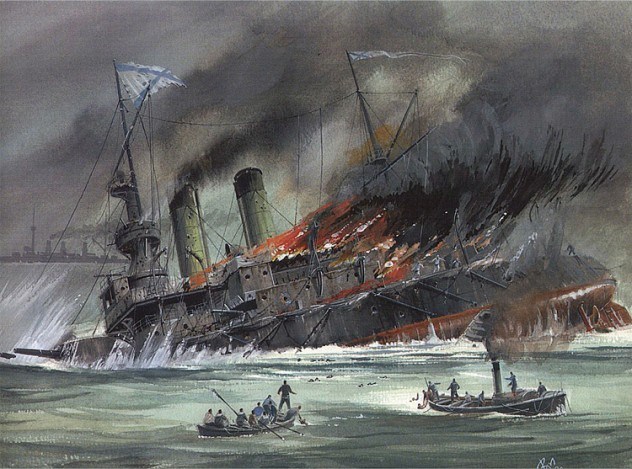Friday 8 December 1939
 |
| Polish pilots cleared to serve in the RAF on 8 December 1939. |
The Finns who had abandoned Suomussalmi, the 15th and 16th Detached Battalions of the Finnish Army, also know the stakes and are waiting. With a clear field of fire across the frozen surface, they beat back the Soviets and inflict massive casualties. The Soviets regroup and try to outflank the Finns to the northwest, at Puolnaka. The Polish 16th detached battalion is there waiting for them and stops the Soviets cold.
Elsewhere on the front, the Soviet forces also are mostly stopped. The Finns are holding against the 8th Army at the River Kollaa. Only the Soviet 14th Army in the far north takes some tundra near Petsamo against three Finnish companies led by Captain Antti Pennanen.
It is the first day of the Winter War when the Finns largely hold their ground.
European Air Operations: The Royal Air Force and the British government agree to allow exiled Polish pilots to be attached to the RAF.
 |
| Otto Kretschmer. |
The US Consul General in Hamburg reports that the Germans have detained 125 vessels from neutral nations - 40 Swedish, 12 Danish, 5 Norwegian, 40 Finnish, 14 Estonian and 14 Latvian. The Germans, like the British, have adopted a sweeping interpretation of what constitutes "contraband."
U-34 (Kapitänleutnant Otto Kretschmer) torpedoes and sinks the 2,400-ton Danish freighter Scotia northeast of Scotland. Two survive and 19 perish.
U-48 (Kapitänleutnant Herbert Schultze) torpedoes and sinks 6,668-ton British freighter Brandon south of Ireland. Nine perish.
British freighter Merel hits a mine and sinks off Ramsgate.
British freighter Corea hits a mine and sinks.
Convoy OA 49 departs from Southend, OB 49 departs from Liverpool, HG 10 departs from Gibraltar.
British Military: In Egypt, General Wavell dismisses Major General Percy Hobart from his position forming Mobile Force (Egypt). Hobart has unconventional ideas about the use of tanks and other mobile forces, seeing in them the ability to project long-range power across the desert. The War Office is not a fan of these ideas, but, strangely enough, one Heinz Guderian in the Reich thinks that Hobart is brilliant and actually pays a translator so that he can read everything that Hobart writes. Hobart's dismissal is a reflection of the tensions going on in every major army about the role of mobile forces and tanks in particular. Hobart goes home to Chipping Campden and joins his Local Defence Volunteers unit as a lance corporal, serving as its Deputy Area Organiser.
Italy: Air Marshal Italo Balbo, long-time Governor-General of Libya, visits Rome and publicly states, "You will all wind up shining the shoes of the Germans!" He is the only fascist to publicly criticize Mussolini's obvious sympathies with Hitler and wishes that Italy would join the Allies. Balbo is such a towering figure in the military that Mussolini does nothing but inwardly seethe.
Peru: Manuel Prado y Ugarteche inaugurated as president.
China: The Japanese 104th Infantry Division attacks Chinese Kwantung Army forces in Kwantung as a spoiling attack against the Chinese 4th War Area. The Japanese spoiling attacks in Wenhsi and Hsia Hsien continue.
Future History: Gordon Arthur "Red" Berenson is born in Regina, Saskatchewan, Canada. He becomes a National Hockey League player in the 1960s and eventually becomes a coach. As of this writing, Red Berenson is the coach of the Michigan Wolverines men's hockey team and has been for 32 years.
 |
| Oklahoma City, Oklahoma, December 8, 1939. Somebody important is coming or going on the Santa Fe, note the drum band. [Oklahoma Publishing Company Photography Collection]. |
December 1939
December 1, 1939: Finland Fights for its LifeDecember 2, 1939: First RAF Bombs on Germany
December 3, 1939: Soviets Still Advancing in Finland
December 4, 1939: Molotov to Roosevelt - Mind Your Own Business
December 5, 1939: Prien Returns
December 6, 1939: Attacks on Mannerheim Line
December 7, 1939: Kollaa Holds!
December 8, 1939: Polish Pilots Return
December 9, 1939: First British BEF Fatality
December 10, 1939: The Soviets Capture Salla in Finland
December 11, 1939: Finns Make Their Move
December 12, 1939: Finnish Success in the Winter War
December 13, 1939: Battle of River Platte
December 15, 1939: Chinese Winter Offensive in High Gear
December 16, 1939: Battle of Summa
December 17, 1939: End of Admiral Graf Spee
December 18, 1939: Battle of Heligoland Bight
December 19, 1939: British Disarm Magnetic Mines
December 20, 1939: Finnish Counterattacks Continue
December 21, 1939: Finns Plan More Counterattacks
December 22, 1939: Enter Chuikov
December 23, 1939: Failed Finnish Counterattack
December 24, 1939: Soviets on the Run
December 25, 1939: Fresh Soviet Attacks
December 26, 1939: Vicious Battles at Kelja
December 27, 1939: Grinding Finnish Victories
December 28, 1939: Liberators
December 29, 1939: Finns Tighten the Noose
December 30, 1939: Finnish Booty
December 31, 1939: Planning More Soviet Destruction
2019





